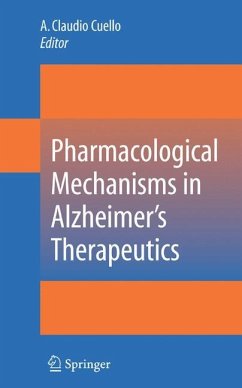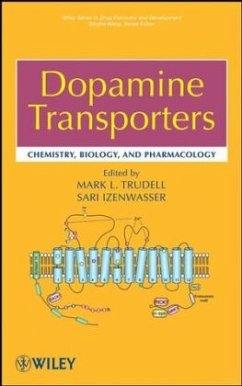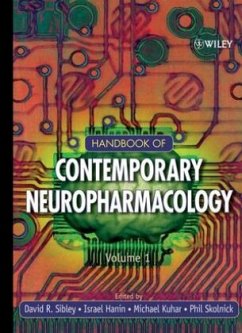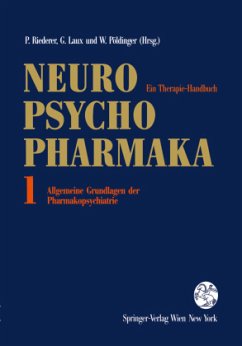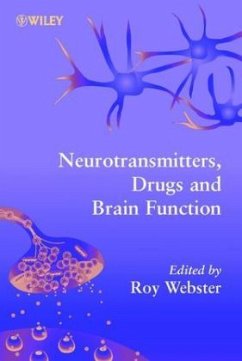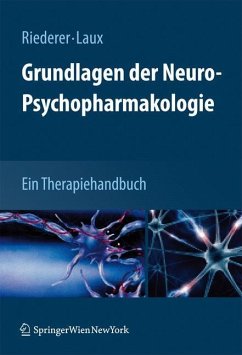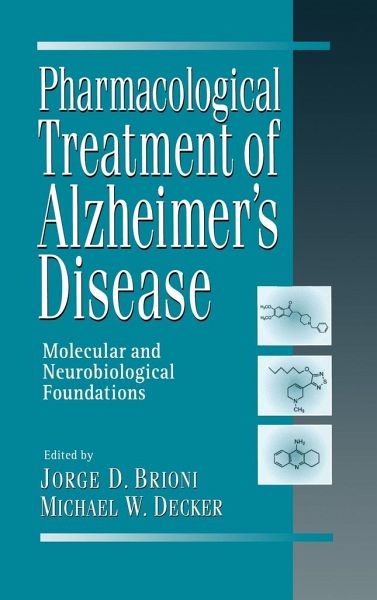
Pharmacological Treatment of Alzheimer's Disease
Molecular and Neurobiological Foundations
Herausgegeben: Brioni, Jorge D.; Decker, Michael W.
Versandkostenfrei!
Versandfertig in über 4 Wochen
299,99 €
inkl. MwSt.

PAYBACK Punkte
150 °P sammeln!
Geboten wird ein vollständiger, ausgewogener Überblick über die neuropharmakologischen Grundlagen von Therapeutika für die Alzheimer-Krankheit. Neueste Untersuchungen molekularer Strukturen und aktuelle klinische Daten werden mit der Verhaltens- und Erkenntnisforschung verknüpft und interpretiert.




